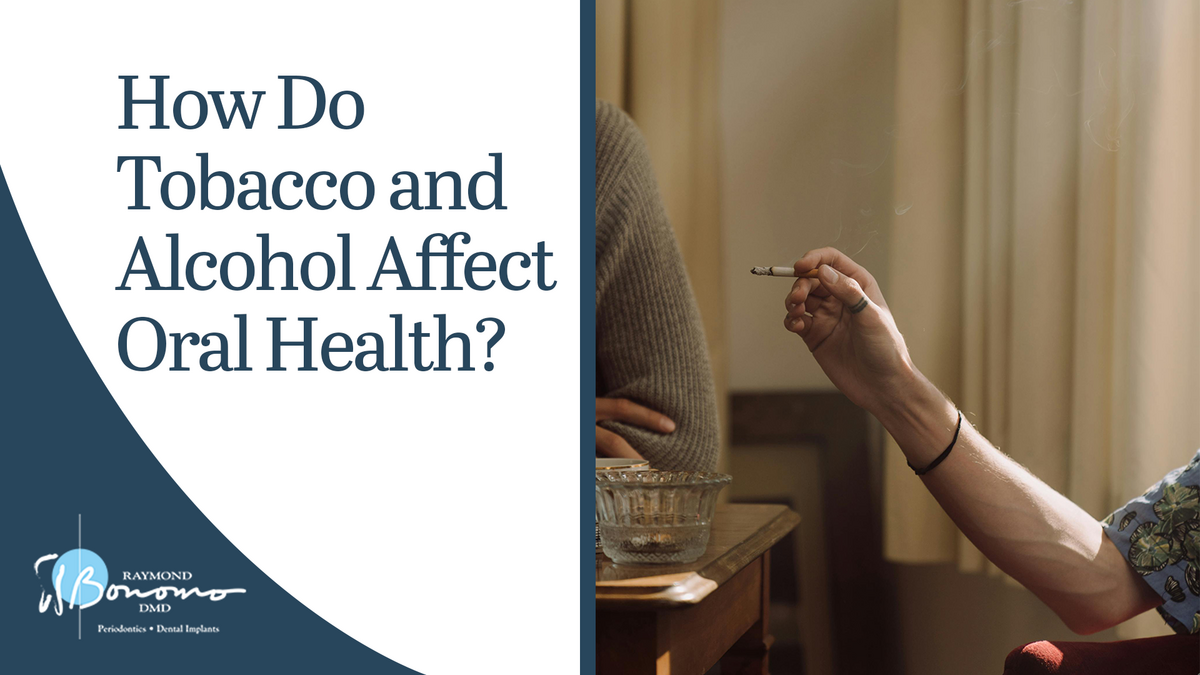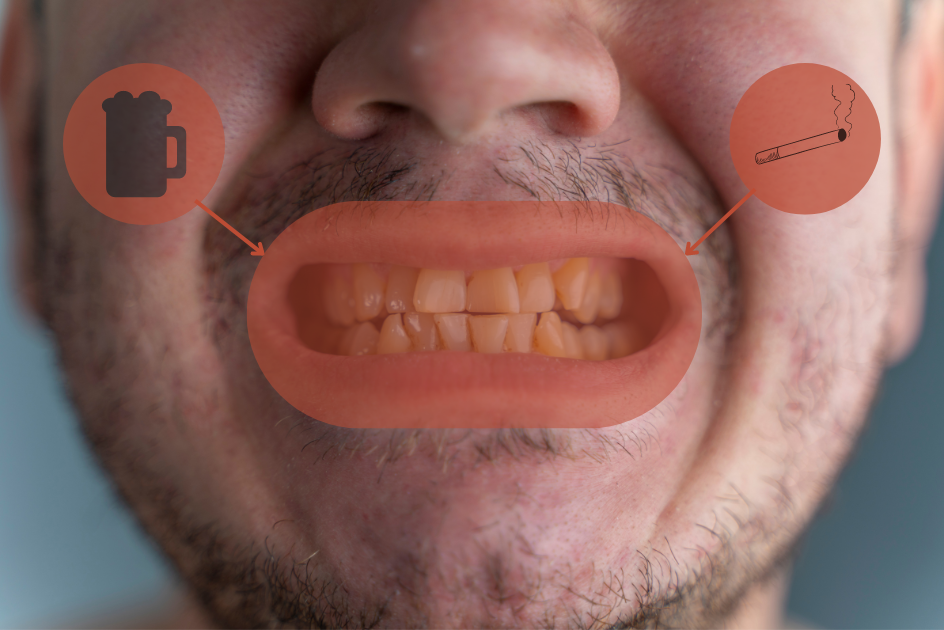How Do Tobacco and Alcohol Affect Oral Health?

Looking after your oral health is important for maintaining the comfort and function of your mouth. Keeping your teeth and gums healthy can help you avoid costly dental treatments and periodontal disease.
Tobacco and alcohol are two of the biggest threats to our oral hygiene today. These substances can cause serious issues that stack up over time, potentially leading to an oral health catastrophe.
In this post, we will discuss the effect of tobacco and alcohol on oral health. From staining and dry mouth to periodontal disease and even cancer, we will cover it all. Keep reading to learn more!
Impact of Tobacco and Alcohol Use on Oral Health
Tobacco and alcohol use can have a detrimental impact on our oral health. These substances can cause various problems, including tooth decay, gum disease, tooth loss, and even oral cancer.
Tobacco and alcohol each have varying effects on your teeth, throats, gums, and tongues, so if you use either one of these substances, it is important to understand the potential ramifications their use can have.
First, let's discuss tobacco and the potential harm it can cause on the oral hygiene of those who use it.

How Tobacco Affects Oral Health
Tobacco use, particularly smoking, can have a detrimental impact on oral health. One of the most noticeable effects is the staining of teeth and tongue. Tobacco contains tar and nicotine, which can lead to yellowing and discoloration, making it difficult to remove with regular brushing. These stains can be stubborn and may require professional dental cleaning or teeth whitening treatments.
Another significant oral health concern related to tobacco use is periodontal disease. Smoking reduces blood flow to the gums, impairing their ability to heal and fight infections. This can lead to various forms of gum disease, from mild inflammation of the gums (gingivitis) to a more severe condition called periodontitis, which can lead to tooth loss or bone loss and requires prompt periodontal treatment. In addition, smokers are more likely to have deeper periodontal pockets and show more severe bone loss.
Tobacco use can negatively impact the healing process after oral surgeries or procedures. Smoking affects blood circulation and immune response, which can slow down healing and increase the risk of complications. This is particularly relevant for procedures like tooth extractions, periodontal treatments, and dental implant placement.
Now that we have discussed the negative effects of tobacco use on oral health, let's look at how alcohol use negatively affects oral health.
How Alcohol Affects Oral Health
Alcohol consumption can have a detrimental impact on oral health in several ways. One of the most immediate effects is dehydration and dry mouth. Alcohol is a diuretic, meaning it increases urine production and dehydrates the body. This can lead to a dry mouth, which in turn reduces saliva production and can negatively impact your comfort and dental health long term.
Saliva plays a crucial role in oral health by neutralizing acids, washing away food particles, and protecting teeth and gums. When there is insufficient saliva, the mouth becomes more susceptible to tooth decay and cavities.
Increased risk of tooth decay is a common long-term consequence of alcohol consumption. The combination of reduced saliva production and alcohol's acidic nature creates the perfect environment for the growth of harmful bacteria, leading to the erosion of tooth enamel and the formation of cavities. Keep in mind that many forms of alcohol come with a high added sugar content, which can harm your teeth and lead to a need for more regular dental treatment.
Gum disease is another oral health issue associated with alcohol. The alcohol's drying effect can cause gum inflammation, making them more prone to infection and leading to gum disease. Moreover, alcoholic drinks weaken the immune system, impairing the body's ability to fight off gum infections, making more regular dental care a necessity.
Oral cancer is perhaps the most severe of the oral diseases that alcohol can cause. Alcohol has been linked to an increased risk of developing oral cancer. Regular and excessive alcohol consumption damages the cells and tissues in the mouth and throat, increasing the likelihood of cancerous growth.
Treatment for Gum Disease at Bonomo Periodontics
Periodontal disease is a serious issue that must be addressed in those experiencing symptoms. Gum disease is further exacerbated by tobacco and alcohol use and if untreated, decayed teeth, bone loss, and other dental diseases soon follow.
If you have experienced symptoms of gum disease like severe discomfort, swollen or bleeding gums, mouth ulcers, persistent or unusual bad breath, receding gums, changes in bite, or other similar symptoms, it is time to schedule an appointment with Bonomo Periodontics.
Dr. Raymond Bonomo is Dayton and Cincinnati's foremost expert on periodontal care, and he can help you find the relief you need.
Click here to schedule an appointment now!
Follow Bonomo Periodontics on Facebook for more information!
Happy with the difference Bonomo Periodontics has made in your life? Leave us a five-star review here!

